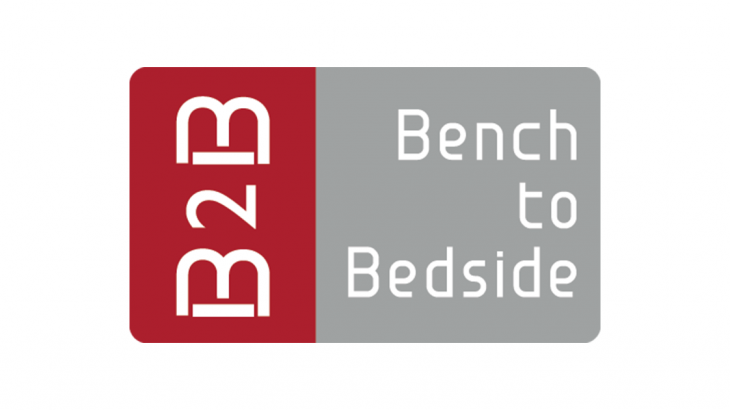Optima Recovery’s combination hot and cold physical therapy device won the $25,000 grand prize in the 2020 Bench to Bedside Competition earlier this month.
Their device meets a common need for physical therapists, athletic trainers, and medical professionals who regularly use hot and cold treatments to promote healing and recovery to strained and injured muscles. Optima Recovery’s invention consolidates temperature therapies into a single device, eliminating excessive equipment and maintenance.
“Optima’s goal is to save physical therapists time and money. Most importantly, Optima is designed to help physical therapists provide patients, ‘Optimal pain-relief, Optimal recovery, and Optimal living,'” says Joshua Lyman, a student at Utah State University and member of the Optima Recovery team. The five-person team also comes from University of Utah and University of Wyoming with expertise in physical therapy, engineering, business and economics. “B2B has been one of the most rewarding and educational experiences of all of our schooling. It has sparked an entrepreneurial experience in all of us.”
Led by the Center for Medical Innovation in partnership with the Lassonde Entrepreneur Institute, the Bench to Bedside program challenges students to identify and address opportunities for improvement in the current health care market. Interdisciplinary student teams collaborate with practicing health care professionals and industry experts to find novel solutions to common problems. Bench to Bedside is sponsored by Zions Bank.
This year, 29 teams took part in the competition. Representing the University of Utah, Brigham Young University, Weber State, Utah State and other universities, the teams vied for more than $100,000 in prize money.
“Bench to Bedside is a shining example of a program that fosters cross-disciplinary, collaborative learning and invention,” said Michael L. Good, M.D., senior vice president for Health Sciences and CEO of U of U Health. “It is what we need during the time of this pandemic, when the need for great minds and innovative technology solutions is greater than ever.”
Typically, Bench to Bedside culminates with an awards ceremony held in-person at the state capitol. This year’s presentations were postponed due to COVID-19 and the winners of the 2020 competition were announced virtually.
Learn more about the awardees and all competing teams here. Visit the Bench to Bedside program website here.
2020 Award Winners
Grand Prize Winner ($25,000): Optima Recovery
- Joshua Lyman, Caleb Adams, Luke Olsen, Nick Lewis, Todd Muller
- Combination hot and cold physical therapy device.
Overall Runner-up ($15,000): O2Go
- Sonja Blackham, Andrea Myers, William Thomas, Taylor Hansen, Michael Paskett
- Improved oxygen tank mounting system for mobility walkers.
Legacy Grand Prize Winner ($25,000): Bedvee
- Stella Markova
- At-home adjustable head of bed device.
Legacy Runner-up ($15,000): Gaia Technologies
- Nicholas Witham, Thomas Odell, Rami Shorti, Brian Hanson, Farshad Mogharrabi
- Upper-arm prosthesis sensor array.
Best in Medicine ($5,000): Neurosense
- Peripheral neuropathy measurement device.
Best in Engineering ($5,000): Vizport
- Visualized shunt placement for hydrocephalus surgery.
Best in Digital Medicine ($5,000): Smart2Eat
- Nutrition-focused restaurant recommendation mobile application.
Best in Business ($5,000): Noci Therapeutics
- Analgesic wound dressing for partial dermal thickness injuries.
Global Health Award ($5,000): PhyR
- Personal insulin generator for developing countries.
Marriott & Eccles Libraries Award ($5,000): Gennisi
- Improved calculation of maternal blood loss during childbirth.
COVID-19 Innovation Award ($2,500): Ideas Innovation
- Low-cost adaptable powered air-purifying respirator.
About Bench to Bedside
Since 2010, Bench to Bedside has mentored over 1,000 participants in 238 teams that have created 242 medical devices, filed more than 155 patents and launched more than 67 companies. During the seven-month B2B program, student teams form “startup” companies to identify an unmet clinical need and design a technology solution to address the need. Participating students—who come from multiple disciplines ranging from architecture to the arts, engineering to law, and biology to business — learn the power that diversity of thought can bring to the innovation process.



